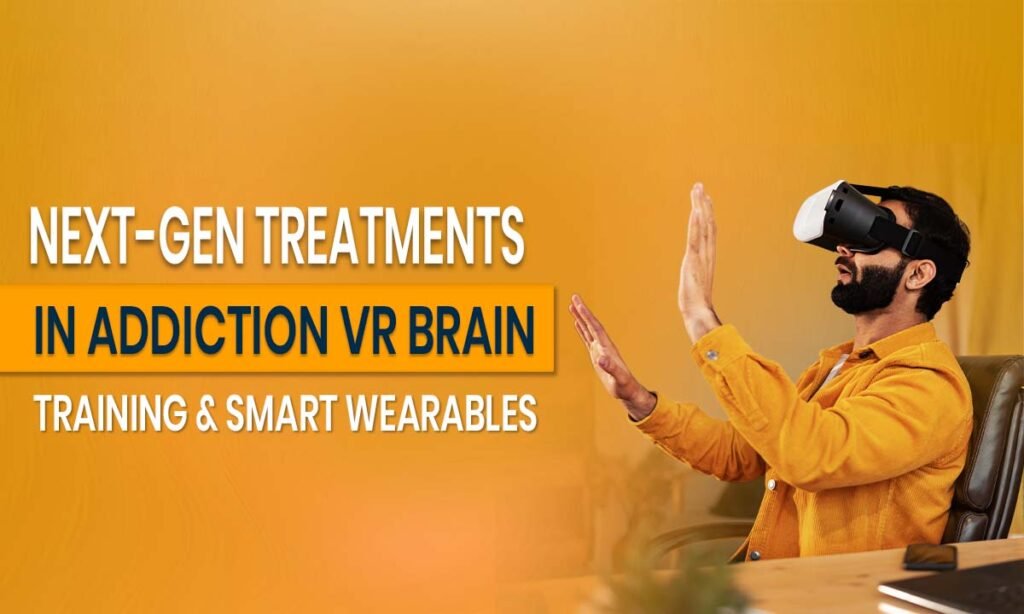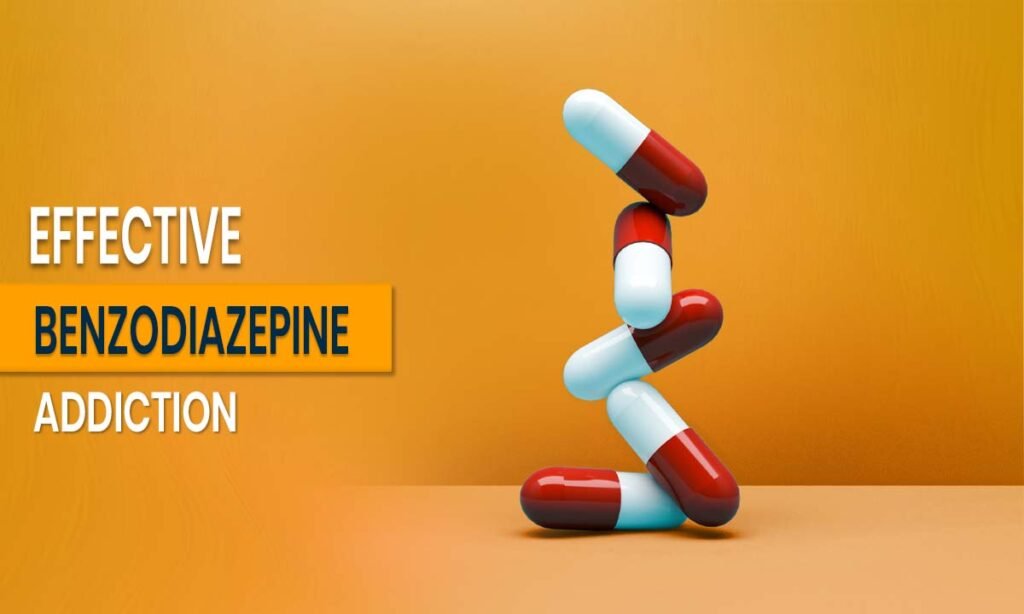
Behavioural addiction and substance use disorders are becoming quite prevalent in several countries. These mental health challenges can impact an individual’s daily routine and reduce functioning. The influence of behavioural addiction and substance use disorders can be felt on society as well due to increased concerns of domestic violence, families breaking apart, the workplace getting impacted, etc.
To manage the mental health concerns and reduce their negative impact, diverse addiction treatment has been developed. Next-gen treatments in addiction are being researched to offer premium services to the clients. With the advancement in technology, AI in mental health recovery is also gaining popularity. Addiction treatment can be done using diverse ways and one of those involves AI in mental health recovery.
The Evolution of Addiction Treatment
Addiction treatment has evolved over the years with the development of science and technology. The focus is on preventing relapse and making the treatment more tailored to individual needs. The goal is also to destigmatise beliefs around addiction treatment such that individuals can reach out without any hesitation.
Pharmacotherapy, counselling sessions and virtual reality addiction therapy are some of the many aspects of the entire addiction treatment process.
From Traditional Methods to Tech-Based Healing
The traditional healing methods varied from culture to culture based on the beliefs, customs and practices. Next-gen treatments in addiction incorporate virtual reality (VR) addiction therapy. This focuses on allowing the patients to practise their learnt coping strategies for cravings in a stimulated environment without the consequences that one may face in the real world. This is a way to learn to control one’s urges and reduce the chances of relapse.
Why Innovation Matters in Recovery
Next-gen treatments in addiction involve a lot of innovative techniques and strategies. Innovation methods in recovery are important because:
- Continuous improvement can help in bridging the gap from theoretical formulation to practical real-world settings.
- A more tailored and specific treatment plan can be developed with the help of newer techniques.
- Innovation can also allow improvement within the previously existing treatment methods to make them better for the client’s well-being.
Virtual Reality (VR) Therapy for Addiction Recovery
Virtual reality addiction therapy is a way to allow individuals to practice their coping skills in a safe yet stimulating environment. It is done with the assistance of mental health professionals who can guide and facilitate the process.
How VR Therapy Works
- Devices such as VR headsets can be used to stimulate real-life circumstances.
- These situations are related to an individual’s addiction, trigger and cravings.
- It is done with a trained practitioner to ensure the client’s safety and well-being.
- The client gets an opportunity to control urges and practise coping skills.
- Successful coping and practice make the client more prepared for real-world settings.
- Repeated exposure can strengthen one’s practice and make them feel more empowered
Benefits of VR in Recovery
- Client is actively engaged in the recovery process
- Client’s awareness about coping skills can increase
- Each session can be personalised as per the client’s needs
- Physiological responses can also be monitored by therapists
- Clients can feel confident about their coping skills and abilities
Brain Training and Neurofeedback in Addiction Recovery
Neurofeedback treatment is known for improving the psychological functioning of individuals diagnosed with substance use disorders. Neurofeedback is often recognised as a branch of biofeedback training. It is a technique used for training the body and mind to improve functioning.
What Is Brain Training Therapy?
Brain training therapy can be described as a method to improve the functioning of the brain by strengthening cognitive skills. This can involve betterment of memory, attention and problem-solving.
The Science Behind Neurofeedback
Science often discusses the biological causes of addiction. In simple terms, neurofeedback can be explained as training the brain to control and regulate to maintain optimal functioning. There might also be the use of wearable technology in mental health as part of using neurofeedback.
Benefits of Brain Training
The benefits of brain training may vary based on the concerns and training conducted. A few of the many benefits may include:
- Improved emotional control
- Positive brain plasticity
- Promoting clarity of mind
- Enhancing learning capacity
- Building cognitive flexibility
Smart Wearables: Monitoring Recovery in Real Time
Wearable technology in mental health can include smart watches and fitness bands that can alert the individual and make them more mindful of their body’s physiological response, such as heart rate, sleep, number of steps, etc.
How Wearable Devices Support Addiction Recovery
Next-gen treatments in addiction also include a lot of advanced technology devices. As a part of AI in mental health recovery, these wearable devices can support addiction treatment in the following ways:
- Tracking physiological changes
- Alerting the individual and increasing awareness
- Increasing motivation through reminders
Features That Help Users Stay Accountable
Wearable technology in mental health can also contribute towards improving client accountability through the following ways:
- Progress tracking
- Mood charting
- Reminders and alerts
Examples of Smart Recovery Devices
There are a lot of watches, bands, etc that can be used for facilitating the recovery journey. It is encouraged to consult with your mental health professional for learning about the device that can help you the most.
The Future of Addiction Recovery
Increasing mental health awareness has paved the way for more research and better treatment options. The future of addiction recovery depends on today’s research and advancements.
Innovations on the Horizon
There are a lot of tools, devices, etc, used as aids in the mental health counselling process for both the client and practitioner. Innovative tools can include watches, virtual reality devices, etc, to support effective treatment planning.
Personalized Treatment Plans
Diverse evidence-based techniques can be used in combination to offer a personalised treatment plan to the client. Here are some benefits of a personalised treatment plan:
- Focus on the client’s needs
- Increased client engagement
- Flexibility in treatment
- Addressing the core concern
Ethical and Privacy Considerations
When seeking support from a mental health professional, you can be mindful of your rights as a client to ensure the practice is ethical. If any AI tools are also used, then you can also inquire regarding the privacy policy and ethics followed. Here are some ethics you might inquire about:
- Confidentiality
- Informed consent
- Data security
- Professional Competence
- Autonomy of the client
Conclusion
If you are looking for an addiction recovery treatment center that offers holistic support combining the best of technology advancements and scientific techniques, then you can explore Athena Luxus.
We offer both inpatient and outpatient facilities with a personalised treatment plan.
Our treatment services include:
alcohol detox treatment
cocaine addiction treatment
heroin addiction treatment
drug abuse treatment
You can further put forth your concerns by calling us at +91 9718921212, and it would be an honour to support you!
Frequently Asked Questions
Ques1 – What are next-gen treatments in addiction recovery?
Ans 1 – The next-gen treatments in addiction recovery may involve a lot of technology-based devices.
Ques 2 – How does virtual reality help treat addiction?
Ans 2 – Virtual reality helps treat addiction through giving clients a chance to practise their coping skills, identify goals and experience new learnt behaviour in a safe yet stimulating environment with the help of a professional.
Ques 3 – Can wearables really support long-term recovery?
Ans 3 – Wearables can assist with monitoring and creating more awareness for the individual. This combined with professional support can help in long-term recovery.
Ques 4 – Is brain training effective for addiction?
Ans 4 – Yes, brain training can be useful for addiction-related concerns as it helps in improving cognitive flexibility and emotion regulation.
Ques 5 – What’s the future of technology in addiction treatment?
Ans 5 – The future of technology is dependent on the current research and advancements in AI. Mental health professionals can use it as per their discretion to offer the best possible services to the clients.

